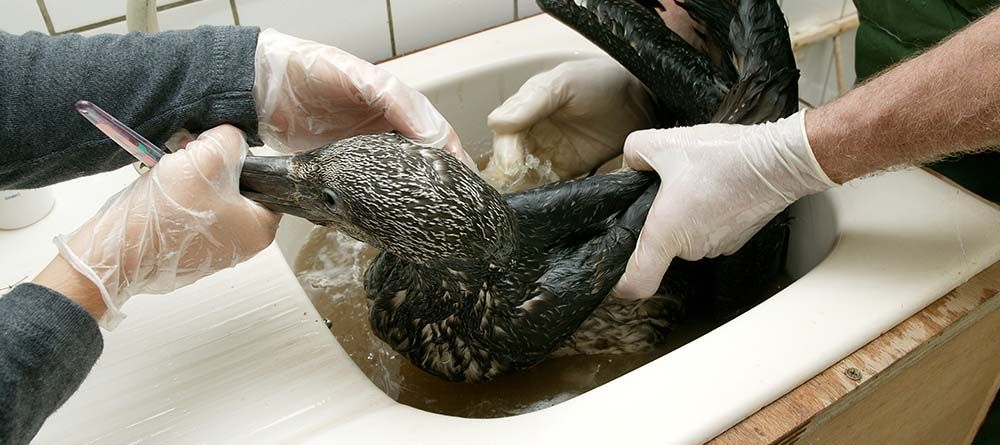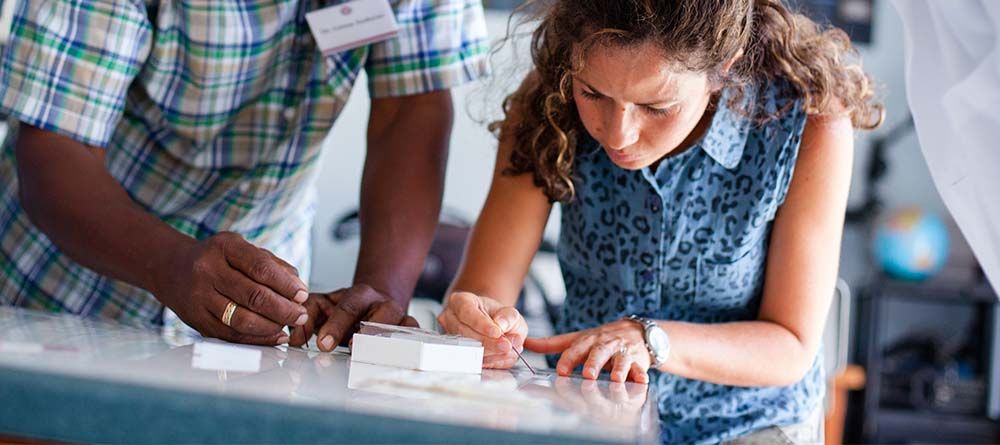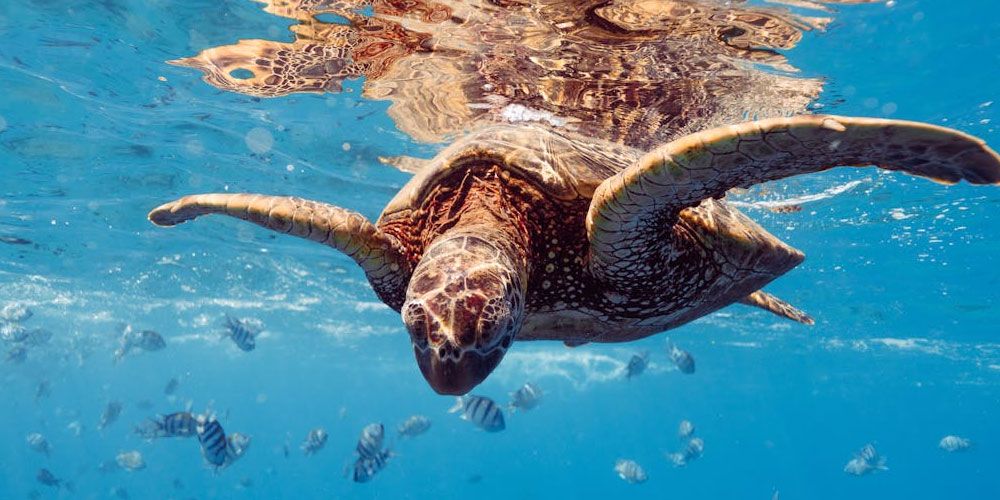A passion for animals is a trait that all veterinarians and veterinary school students share. But aquatic veterinarians have a unique love of water—lakes, oceans, ponds, rivers—and all the living things that call them home. Also known as marine veterinarians, these professionals provide compassionate care to water-dwelling animals of all kinds.
If this wet and wildlife-focused career sounds appealing to you, keep reading for a detailed breakdown of what to expect from this gratifying job.
What does an aquatic veterinarian do?
If you’ve ever brought your dog or cat to a vet for an emergency or routine treatment, you probably have a good idea about what a companion animal veterinarian does. But there are many other types of veterinarians.
An aquatic vet’s duties vary considerably depending on the specialty, but in general, they are responsible for the overall medical management and well-being of the animals in their care. They must be well versed in a wide variety of conditions and diseases and their corresponding medications and treatments, in addition to common injuries. Marine and aquatic vets typically will carry out some or all of the following tasks:
- Administering anesthesia and performing surgery
- Carrying out medical exams
- Performing necropsies (animal autopsies)
- Administering tests and vaccinations
- Observing and analyzing behavior
- Treating wounds
- Implementing nutrition plans
- Responding to emergency situations
- Administering end-of-life care and euthanasia
- Running laboratory diagnostics
- Participating in scientific research
- Raising fish, crustaceans, and other food animals for consumption

What kinds of animals do aquatic veterinarians treat?
Over 70 percent of the Earth’s surface is covered by water, and that water contains an incredible variety of environments and species. Because of this, many doctors of aquatic medicine concentrate in a specific class or type of animal (i.e., ocean fish, marine mammals, crustaceans, etc.)
Doctors of aquatic medicine treat animals such as:
- Reptiles and amphibians—frogs, salamanders, newts, turtles, tortoises, crocodiles
- Marine mammals—seals, whales, dolphins, walrus, manatees, otters, penguins, sea birds
- Invertebrates—coral, oyster, jellyfish, starfish, clam, giant kelp, crab, lobster
- Cephalopods—squid, octopus, cuttlefish, nautilus
- Fish—freshwater and saltwater, pet and ornamental, wild and game
- Sharks and stingrays
Where do aquatic veterinarians work?
Marine and aquatic vets work in a variety of settings. For example, those who work in sea bird conservation might spend most of their day outdoors or on the water while a marine vet who does aquaculture research will spend significant time in a laboratory.
Aquatic vets are commonly employed at aquariums, harbors, sanctuaries, zoos, research centers, laboratories, fisheries, universities, and private ponds. Regardless of where you end up practicing aquatic medicine, be prepared to spend a lot of time at the water’s edge and getting wet in general.

What skills do aquatic veterinarians need?
Beyond the obvious affinity for water and animals, an aquatic veterinarian must be well versed in many hard and soft skills. One of the unique challenges of veterinary medicine is that patients can’t communicate ailments or symptoms to their doctor, making an already difficult job even trickier. Vets are trained to overcome this by compensating with exceptionally keen observation and critical-thinking abilities, mastery of technical knowledge, problem-solving skills, and a vast array of diagnostic tools.
Manual dexterity and physical strength are also typically needed in this profession. Many vets perform surgery and other delicate procedures that demand a steady hand, in addition to field work that requires significant stamina. For aquatic and marine veterinarians specifically, it’s highly encouraged to cultivate water-specific proficiencies, such as swimming, snorkeling, scuba diving, and operating watercraft and other equipment.
While the focus of this career is obviously animals, that doesn’t mean that vets are off the hook when it comes to dealing with humans. Developing strong interpersonal and communication skills will go a long way towards your success as a veterinarian. Whether you’re working with anxious pet owners or handlers, fellow colleagues, or employees, you’ll need to collaborate with others to get the job done right. The role can also be emotionally taxing. Aquatic vets deal with animals who are sick, dying, and abused and have to make hard decisions on their behalf.

What is the employment outlook for aquatic vets?
The job market for vets of all kinds is excellent. According to the Bureau of Labor Statistics(BLS), the employment of veterinarians is projected to grow 16 percent through 2029. This is much faster than the average for all occupations in the US (four percent). While there are no reported predictions for aquatic vets specifically, the growth of the field as a whole is promising for all specialists.
How much do aquatic veterinarians make?
Income among aquatic veterinarians varies according to several key factors, like geographic location, years of experience, type of employer, and chosen specialty. The BLS reports the median annual wage for all veterinarians in 2020 was $99,250. The lowest 10 percent earned less than $60,690, and the highest 10 percent earned more than $164,490.
Are you ready to dive in?
It’s clear that aquatic veterinarians must have a genuine desire to protect animals, a deep respect for underwater ecosystems, and a strong sense of commitment to this challenging and rewarding career. If this article piqued your interest and has you thinking about becoming a marine veterinarian, it’s time to start researching your education options.
Find out how to go from an animal and water lover to a qualified aquatic veterinarian by taking a look at our article “How to Become a Veterinarian: Your 8-Step Guide.”

